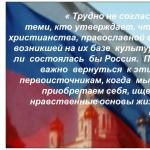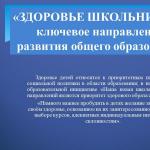What goods can be exported. Unexpected Russian goods for export. How to start exporting goods from Russia to Europe
St. Petersburg small businesses actively export their goods, despite the fact that in the stereotypical view, an exporter is a large holding company with a huge assortment and offices in different countries. For example, Irina Baranova, the founder and designer of the Milamira wedding dress brand, receives 60% of her earnings from retail sales abroad. The manufacturer of rafts TimeTrial supplies them to Europe, while having an annual revenue of about 15 million rubles. And the owner of the Shulz brand, Alexander Ivanov, sells bicycles all over the world, from France to Singapore. The turnover of his company is about 30 million rubles.
Everyone has different ways of promotion, most often these are international social networks like Instagram, personal professional connections, cooperation with large brands. The reasons for success also differ: for the US and Europe, this may be a low ruble exchange rate, for the CIS countries - lower competition. For any country, the quality and uniqueness of products will work. But of course, it is always more difficult for small businesses to export: in order to make a profit, they need resources and investments, and small companies often do not have enough of them. Experts told DP how to cope with minimal costs.
Why do small businesses need to export?
Expansion to other countries not only expands demand, but also makes the audience more diverse. It is insurance in case of a crisis or a change in fashion, and it is an opportunity to find buyers for a unique product. For example, in Russia, despite the population of 140 million people, there may not be enough people who want to buy, for example, collectible dolls or expensive equipment for a fashionable sport. By the way, according to business reviews, the low solvency of people in Russia is a very common reason for small firms to go abroad. Vladislav Varshavsky, managing partner of the law firm Varshavsky and Partners, adds that small businesses are interested in exporting not only as a way to expand the sales market. "This is also an opportunity to reduce the tax burden on business," he explains. "When exporting goods to another country, a small entrepreneur is refunded the full amount of VAT. And St. Petersburg has an advantage: proximity to the European market, which leads to lower transport costs."
How to choose a name?
The name of the brand for export from St. Petersburg entrepreneurs is most often the same as inside the country: TimeTrial, Shulz and others. But if the brand is written in Cyrillic and consists of Russian words, the most important thing is to check with the help of native speakers what this word looks like, whether it sounds good for local residents. For example, "Milamira" did not change the name, but simply wrote it down in Latin: Milamira Bridal.
"Before exporting, you need to register your trademark in the territory of the selected country, for this it must be registered in Russia," adds Alexey Fedoryaka, Head of the Industrial Property Department of the Patent and Law Office "Gardium". - This is necessary at least in order not to collide in the foreign market with another player whose trademark will be confusingly similar to yours. He adds that the examination that the state conducts when applying for registration guarantees that there will be no such signs in the selected country. But if they are found after the fact - this threatens the manufacturer with a ban on the sale of goods, its withdrawal and payment of a fine.
What needs to be done before exporting?
Vitaly Litvinenko, head of the export department of the Promet company, believes that before entering the foreign market, maximum efforts should be made to sell it on the domestic market. "When the company understands that the product is interesting and competitive, exports will be more successful. Therefore, it is very important to solve product quality problems at the "before" stage, foreign buyers are much more demanding, in the same Europe there are stricter quality standards than with us," he argues. "Without the appropriate certification, you just can't get there. It's worth going for export if you produce a really high-quality product, production capacities can satisfy market demand and you already have enough strength to make yourself known in the world."
He advises to communicate as much as possible, go to exhibitions and show your product. “This should not be a one-time event, but continuous work. It is necessary to constantly remind yourself, talk, teach the buyer, see competitors, constantly look for new ideas and what can be improved in your product,” continues Litvinenko. in Moscow, the main feature of exports is high costs, which are due to high salaries of employees, respectively, it is more expensive to produce goods than in other regions of Russia.On the other hand, the proximity of the Finnish border can play - more opportunities to communicate with Europeans, to understand their business style. "We ourselves started exporting from the countries of the former USSR. At that time, these markets were more understandable for us - a similar mentality and business methods, as well as easier logistics due to common borders. And I advise everyone to start with countries that are members of the Customs Union."
What difficulties can be expected?
Ekaterina Dyachenko, founder of B2B-Export, an online platform for exporting goods from Russian manufacturers, says that the main difficulties for Russian entrepreneurs when trying to enter foreign markets are associated with poor knowledge of languages and lack of international marketing skills. "It is difficult to win in the global markets without a professional approach to sales. Packaging, promotion, a professional commercial offer, a reasonable and competitive price, high-quality presentation materials in foreign languages, understanding the needs of the client, knowing your competitors, understanding the world standards of interaction are part of the entrepreneur's arsenal", she adds. All this does not necessarily require huge financial costs, but it does require time and preparation.
Vitaly Litvinenko adds that Russia is seen in foreign markets as a supplier of resources. “But few people know that complex technological goods are actively produced in our country,” he complains. “Therefore, when exporting, a company often has to prove a lot, gain trust, build long-term relationships. But these efforts make no sense if the project is short-term and "It's a fast paced business. Exporting is a long and expensive process. It pays off in the long run, you just have to set yourself up for the long haul." Many entrepreneurs say that Russian firms are really not trusted in the IT sector and complex industries. In other areas, bias is less common. Some domestic technology firms register offices, for example, in the Baltic States and hide their origin. But this is not the only way: there are also many examples of manufacturers who openly call themselves Russian.
How to choose a country?
“Original goods will be in demand in emerging markets: Russian goods are of high quality and competitive in price,” Ekaterina Dyachenko is sure. “The states of developing countries are trying to attract not only large players, they create the most favorable conditions for foreign small and markets. Emerging markets do not produce end products in many categories, which may not be very visible, but very significant in terms of volume goods. There are many examples: the St. Petersburg company "" supplies crushers to African countries, LLC "" operates in Nairobi.
Consumer goods manufacturers, on the other hand, are moving to Europe and the US. Russian designer dresses, shoes and sports equipment are often cheaper than local ones, but better than Chinese ones.
How to make your way to other countries easier?
“One of the ways to enter a new market is to find a partner,” says Ekaterina Dyachenko. “But finding a reliable partner can be expensive: travel, networking, negotiations, product development require investment. This tactic can work in rich markets where it is easier to sell than for the poor. Tenders, participation in exhibitions and the opening of representative offices are also effective and working tools. But without support in the e-commerce format, they are no longer enough."
Online shopping is indeed one of the first and most common steps taken by St. Petersburg exporters. They organize the promotion, delivery and acceptance of payments from other countries, and often this is quite enough for work abroad.
How to save?
Irina Baeva, Managing Director of Regus in Russia, recalls that in many countries without a physical presence it is impossible to get a bank account and register a company, you have to rent an office for this. "For small businesses, this is a problem, but now there are virtual offices," she says. "This service includes a postal and legal address in the right city, a local phone number. the new market has been probed, the next logical step is to open our own permanent office with a staff of employees. At the same time, we recommend that you first rent a furnished office for a short-term lease, with the ability to quickly increase the premises or transfer them to another location."
Entrepreneurs are also advised to create company pages on international social networks and post photos with hashtags. Even if you don't hire a professional marketer, this is a free and easy way to find potential clients.
When is it not necessary to enter the markets of other countries?
"There is no point in exporting when there is not enough production capacity, and you can barely cope with the demand in the domestic market," Vitaly Litvinenko notes. The owner of the confectionery production "" adds that not all products are also suitable for this. “In general, for small businesses in any country, exporting is useful and meaningful, look how many Chinese small companies sell their goods with us,” she argues. “But, for example, our cakes are not the kind of product that can be exported. Unless frozen , but in this case, the costs and reaching the required production volume will turn us not into a small business, but into quite a medium business.So there is a sense if the products do not spoil, if they are innovative and there is no such thing abroad, or their cost is lower, than those of the same abroad.
Select the fragment with the error text and press Ctrl+Enter
Export of goods from Russia to China is a profitable business. But many still think that it is not easy to sell our goods in China, because “the inhabitants of the Celestial Empire can do anything themselves”, and “who needs laowai there (in Chinese, laowai - 老外 lǎowài - a foreigner , profane, dilettante). It's not like that at all.
The needs of the Chinese market are limitless, and the rapid development of the economy in general, and the industry in particular, contribute to the fact that many of the Chinese manufacturers are focused on foreign goods. Many Russian manufacturers do not take the Chinese market seriously because of its overcrowding. However, imported goods of many categories are favorably received in the Chinese market, since only the main commodity niches are filled, while the rest are still empty.
With the growth of the Chinese economy, the well-being of the Chinese population increases, and therefore the demand for a wide variety of goods
What goods are in demand in China?
- agricultural products
- Semi-finished products
- Raw materials for woodworking, chemical, food and light industries
All this is well demanded in China. Below is a list of Russian goods that are profitable to export to the Chinese market.
According to the report of the General Administration of Customs of China in January 2017, the trade turnover between Russia and China reached 6.55 billion dollars, which is 34% more than in the same period last year.
1. Lumber and timber
Back in the 2000s, China exported timber from Russia in large volumes, and since 2008 it has become its main importer. In 2014, the share of exports was already 26.6 million m3.

Almost all types of lumber are suitable: timber, lining, tes, sleepers, formwork, board, bar
China's acute shortage of wood is easy to explain - deforestation is prohibited here, and with such a rapid rise in Chinese industry, an increase in the general standard of living and the development of infrastructure, more and more raw materials are needed. For what? Furniture manufacturing is the main industry that accounts for the largest share of timber exports to China. Other industries, of course, also need it, only in smaller volumes.
Only the manufacture of chopsticks takes a huge amount of raw materials.
2. Non-ferrous metals
The Chinese have been increasing their production of non-ferrous metals for a long time, but recently domestic resources have begun to deplete, and raw materials are needed to maintain it. Having switched to imports, China is now one of the main consumers of nickel, zinc and copper, and one of the leading buyers of other types of non-ferrous metals.

Copper is the most demanded non-ferrous metal exported to China
Copper imports to China account for 40% of the total volume in the global market. The price of the metal is gradually increasing, so many Russian entrepreneurs supply copper there in order to maximize profits.
3. Buckwheat husk
Buckwheat husks in China are used for several purposes:
- as a food supplement for livestock (to supply animals with useful micro- and macroelements, and at the same time remove all harmful substances from the body of animals)
- for the production of anti-allergic pillows (synthetic fillers are inferior to buckwheat in many respects, besides, a pleasant aroma not only contributes to a quick fall asleep, but also helps to restore blood circulation and reduce fatigue)
- in the production of furniture (in particular, in the preparation of wall frames, cabinets, pedestals)
- for agricultural purposes (about 40% of potassium oxide and a number of other nutrients are found in buckwheat husks. The ash obtained from the burning of this husk and subjected to special processing is a valuable fertilizer for many plants)

In Russia, a ton of buckwheat costs just over 100 dollars, in China - about 500
Over the past 15 years, buckwheat production in China has halved, and the need for such raw materials is constantly increasing, due to the rapidly growing pace of development of agriculture and industry.
4. Stainless steel scrap
The widespread use of stainless steel - in everyday life, in agriculture, in medicine, etc. makes it in demand all over the world.

About 10 million tons of metal produced from scrap
China is one of the record holders for the production of stainless steels. Two main markets for stainless steel scrap are concentrated here - Wuxi (Jiangsu Province) and Foshan (Guangdong Province), whose capacity is not enough to process the metal. Therefore, China vehemently buys scrap from other countries.
Scrap purchases in China are strictly limited by the state, since all metallurgical concerns work in its interests.
5. Chemical products (bitumen)
As early as 2008, China became the world's second largest consumer market for bitumen products after the United States. Lack of feedstock technology and early government restrictions brought foreign bitumen exporters into the Chinese market.

The use of SBS-based bitumen increases the life of the road surface by two to three times
Recently, the demand for bitumen in China has exceeded supply - despite the development of high technologies and the chemical industry, there is still not enough domestic production, so the Chinese market willingly accepts domestic products.
Bitumen is mainly used as a material for road construction, but is also used in roofing or repair work.
6. Cereals
In 2016, Russia became the world leader in the supply of grain to the world market, according to Interfax. China has undoubtedly always been and remains one of the main importers of grain crops exported from Russia. Selling grain in the PRC is a profitable business - the pricing for wheat and barley here is much higher than ours. Imported grain is needed by China primarily for livestock feed, as the country's annual consumption of meat is growing.

Russian grain crops have great prospects in the Chinese market
The main advantages of domestically produced wheat and barley compared to other foreign analogues are a good percentage of gluten and only a small percentage of pesticides.
7. Alcoholic drinks
At first glance, the Chinese are not avid fans of alcohol, although the culture of drinking wine drinks in China has developed a long time ago. China needs a wide range of wine and vodka products because all transactions, signing contracts and agreements take place in an informal setting - usually in a restaurant, and alcohol is no exception here. And, in view of the low quality of products of our own production, a bottle of good, expensive, and even imported alcohol only sets you in a positive mood.

Wine consumption in China has increased by 50% over the past 4 years
8. Mineral water
The rapid growth of the Chinese economy and industry in the 90s of the last century contributed to the pollution of the environment and the river system of the Celestial Empire. 70% of China's rivers are now polluted, and the quality of drinking water leaves much to be desired. Naturally, the country's residents are extremely concerned about the situation and are forced to buy bottled water. Yes, locally produced mineral water is found in many stores in China, but its price is 7-8 times higher than the cost of ordinary bottled water, because there are almost no mineral springs with clean water left here. The lack of own reserves and the high price of local analogues creates a good demand for imports of products from other countries.

Only about 6% of the world's drinking water is concentrated in China, while in Russia this number reaches 80%.
9. Confectionery
Everyone loves chocolate, right? The Chinese are no exception here... The inhabitants of the Celestial Empire have been leaning more and more on Russian sweets lately. According to analysts, in 2016 the demand for Russian-made confectionery increased by 20% and continues to grow steadily.

In 2016, China became the second largest buyer of Russian chocolate products and the third largest buyer of flour confectionery.
The Center for Confectionery Market Research reports that in 2016, China increased its purchases of Russian chocolate by 4 times, and biscuits by 10 times.
10. Pine nuts
Pine nuts are a natural, environmentally friendly product that Russia is rich in. About 65% of Far Eastern and Siberian pine nuts from Russia are exported to China. Why? This type of raw material is used not only for domestic purposes, but also for industrial use. Processed products - cake, shells, amniotic membrane are used in pharmacology, for the manufacture of vitamins, cosmetic products and dietary supplements, and seeds and cedar oil - in cooking. The amount of raw materials received is not enough to satisfy the growing demand for nuts, so the PRC buys them from Russia.

The yield of cedar trees from 1 hectare of area per year can be about 60 thousand tons
Favorable prospects
The Chinese middle class, interested in foreign products, made up 60% of the country's total population in 2016. And China's strong position in the global economy, good demand for many categories of imported goods will provide exporters with high turnover and stable profits, so entering the Chinese market is a new opportunity for successful business expansion.
*The article is over 8 years old. May contain outdated information
Profitability calculator for this business

The practice of holding a unified exam for grade 11 graduates has existed in our country for several years, and even though many scandals are connected with this event every year, there is no doubt that the USE is about ...

In the search for new business ideas, we are often thrown into extremes, and this is normal. But in answering the question of “what to do”, you can always start with the same thing.

The format of work can be completely different, and investments in your own business will be different. What is needed in virtually any production is a full-fledged packaging line, and for 100 thousand rubles ...

What is a technological dead end, and what enterprises it threatens? In this article, we will talk about this using the example of technologies that are currently used. For example, technology sales.

A new and sought-after business has appeared on the consulting services market - conducting psychological games, and with it a new profession - a game practitioner. We understand what the essence of this phenomenon is.

Cycling long distances has long passed from the category of hobbies into a way of life. Far-sighted entrepreneurs take into account these trends and earn good money from it.

Billiards won the hearts of our compatriots back in the time of Peter the Great, and since then it can compete in popularity among the population of Russia with any other game. If there are many billiard rooms in the city...

An analysis of the freight transportation industry, as well as affiliated industries, clearly indicates a decline in the country's economy as a whole and, as a result, a decrease in the results of this market. In addition to external negative...
There is a stereotype in Russia that China is only a supplier. China is an importer. Now Russian business is just beginning to think about exporting to China. Maxim Dorofeev, head of the Domax company, talks about the new challenges of the time. He has been supporting the export of Russian companies to the countries of the Customs Union and the CIS for more than 7 years, the main specialization of the company is VAT refund.
Imports to Russia have practically stopped. Against this background, a very good situation is emerging for exporters (given the growth of the dollar and the euro). Our products are becoming more competitive.
Why is it more profitable to sell goods for export than in Russia? Thanks to the VAT refund of 18%, the profitability of the export business is higher.
A typical mistake of an exporter is the preliminary deduction of VAT from the final cost of the goods sold. If you set the price immediately after minus VAT, the product is often sold below its cost. Tax audit and refund take six months. Thus, your company's foreign trade balance will be negative.
How do you explore foreign markets for customer companies (small and medium businesses)?
To find out which Russian goods will be in demand in China and offer analysis as a finished product (service) to a client, you need to be in China - this is an axiom. It is impossible to find out something while in the Russian Federation, it is practically unrealistic: either the picture will be distorted, or the price of the error is high.
Much depends on the specifics of the product: if these are b2b products, then the easiest option is direct sales. Combining a telephone survey with an attempt to sell to potential buyers in China. A temporary call center is organized, which is assigned a specific task. Based on the results of the call, a data sample is formed according to certain parameters. It can be considered representative.
If the goods are b2c, then there is either a search for a representative in China, or promotion via the Internet. Although there are a number of cultural and legal restrictions for China.
The easiest and least expensive way is to use Baidu for a rough estimate of demand, "shooting" to the market.
After that, you either look for a partner to represent your interests in China, or open your own local office. It is worth starting with small towns - even if the experience is negative, the losses for the business will be relatively small.
Are there any successful cases of Russian companies that have already entered the Chinese market?
There is a stereotype in Russia that China is only a supplier. China is an importer. Now Russian business is just beginning to think about exporting to China. Sounds like crazy. But gradually you will get used to this idea. Trading in yuan is, whatever one may say, a peg to the dollar (all recalculations go through it).
Russian goods are potentially becoming more interesting to China.
But to say that there are already many companies that have succeeded is impossible.I can give an example of "Sportmaster". They are investing about $200 million to develop a retail network and promote their own brand in China.
The Chinese are now much richer than even 5-10 years ago: the standard of living has risen, domestic consumption is being stimulated at the state level. The goal is to develop our own economy, where the share of consumption of goods and services will be close to the indicators of the developed economies of the world.
In China, it is now fashionable to buy expensive branded goods. Therefore, it is pointless to bring just a product to the market: the Chinese will simply copy it, as they have been used to doing for a good quarter of a century. Bringing a branded product to the market, adapting it to the local mentality, is more difficult, but ultimately more profitable. Now in China, the saturation of the domestic market with European brands has just begun. Due to this, goods from abroad are shrouded in a halo of prestige, even luxury. Therefore, supplying only raw materials is no longer profitable. In addition, judging by world energy prices, this is a vulnerable spot for the Russian economy as a whole.
There is a great demand for quality food in China. A large number of people, everyone wants to eat every day. To feed 1.5 billion people, various tricks are used, the achievements of the modern chemical industry, genetic engineering. More than a year ago, the world media reported that Chinese chemists had created an artificial chicken egg in the laboratory. But what are the consequences of the consumption of such products, scientists, of course, preferred to remain silent. Moreover, it is known that it is already possible to create even artificial fat! It is clear that the quality of Chinese food, in general, leaves much to be desired.
There is a high export potential for Russian products grown on land in favorable environmental conditions.
What is your forecast for the development scenarios of the economic situation in the country for 2015?
Fear is not the best assistant in business. In conditions of economic instability, the price of a mistake increases. However, those who are afraid of making a mistake and do nothing will lose. Production of competitive goods, bringing them to a foreign market, promotion - any actions involve mistakes, but experience will give your company an impetus for development: increase market share, turnover, grow qualitatively. This strategy is much closer to me!
I would like to take this opportunity to congratulate the clients of our company, participants in the foreign economic activity of the countries of the Customs Union, all Russian exporters, existing and potential, on the coming New Year. Despite the fact that we have entered a difficult period for business and life, I wish everyone to look to the future with optimism, continue to work, compete and achieve their goals. Let your efforts, perseverance and dedication turn into new contacts, new clients and confidence in the future. Good luck and prosperity in the coming year!





